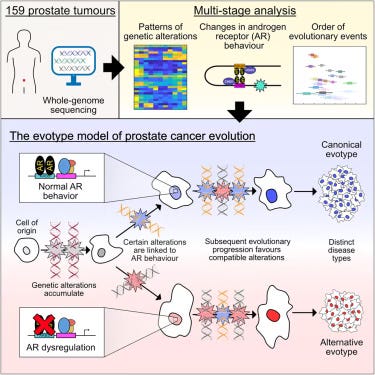AI Does Good. Helps Cancer Fight
Pay no attention to the silly Google Gemini images, this is AI doing something noteworthy
Prostate Cancer is estimated to affect one in every eight men in their lifetime, particularly affecting those over 50 years of age. There are no early symptoms for the disease, and while several forms are treated with low impact remedies some are much, much more problematic.
Cancer Research UK is two notable things amongst others. First and foremost it’s one of the largest cancer research organizations. Secondly, it’s a charity. The largest of its ilk. It is said that the CRUK’s work has been instrumental in the doubling of cancer survival rates we have seen over the past half-century.
And now, thanks to some clever leveraging of AI, the CRUK has made a startling discovery. A new type or strand of the prostate cancer disease. This discovery, published in Cell Genomics, holds the promise of revolutionizing diagnosis and treatment protocols.
The research team, part of The Pan Prostate Cancer Group, used AI to analyze tumor samples from 159 patients. This analysis revealed two previously unidentified subgroups within prostate cancer, breaking the established thinking that prostate cancer was a singular entity.
This newfound understanding has far-reaching implications. First and foremost, as any Risk player or strategic thinker would tell you, you need to fully understand the problem or opponent before you can have the most success against it. Since traditionally, prostate cancer diagnosis has relied on a one-size-fits-all approach, this new discovery sets the stage for more nuanced and specified research and treatments. Dr. Naomi Elster draws a direct line to the past two decades of great success science has had against breast cancer when she says:
"These results could be the game-changer we've been waiting for, enabling a 'divide and conquer' strategy similar to the one that has yielded success in other cancers like breast cancer."
The next step following this discovery is a genetic test that would empower doctors to tailor treatment plans, potentially improving patient outcomes and sparing some men from unnecessary procedures.
On a broader scale, the study not only holds promise for prostate cancer patients but also serves as a testament to the power of AI in medical research. What AI does really, really, really well is sift and organize vast amounts of complex data. It can find and highlight hidden patterns and accelerate scientific breakthroughs.
Precision oncology, where treatments are targeted to the specific characteristics of a patient's cancer, has had great successes and very interesting research in recent years.
Hopefully this good news continues and perpetuates that success.







Good news indeed!